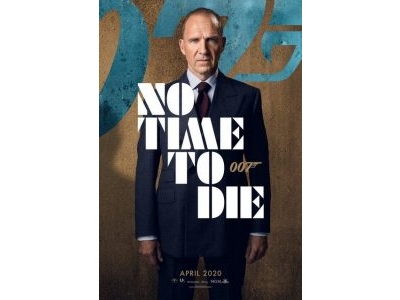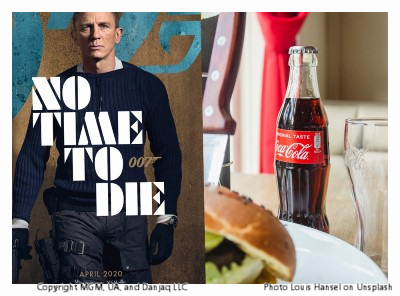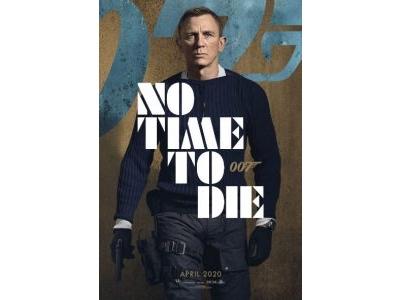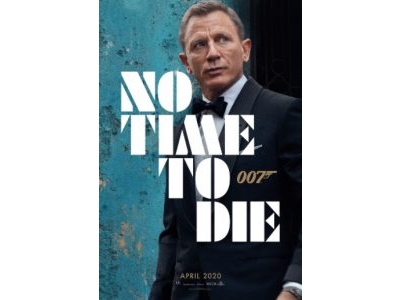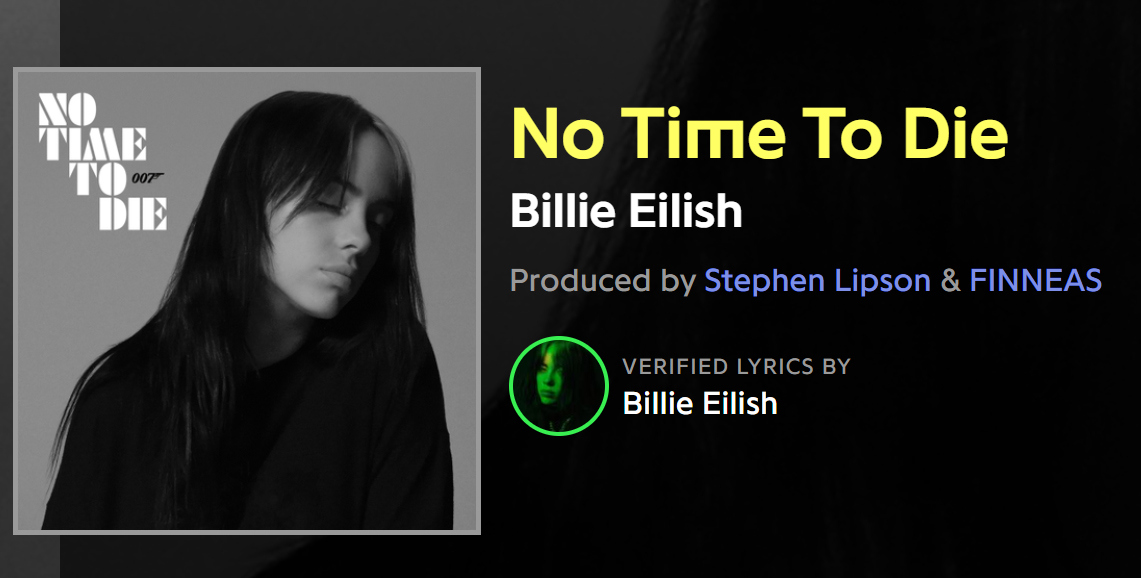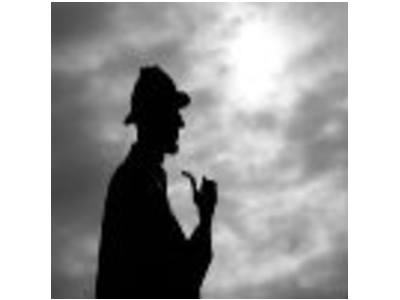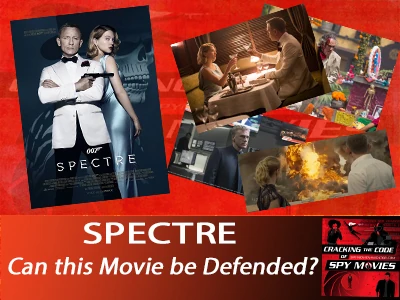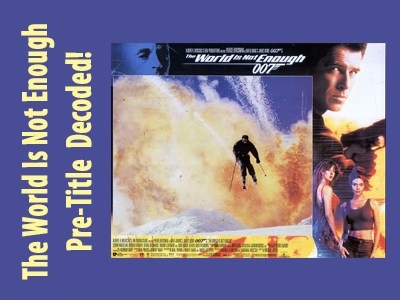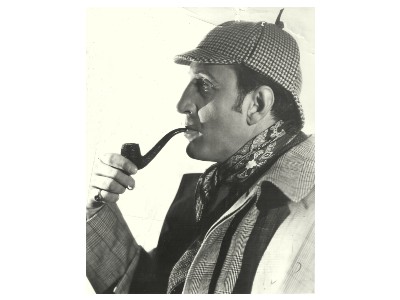James Bond is to Spies What Sherlock Holmes is to Detectives
This transcript is a subset of what is in the podcast. We recommend you listen to the podcast.
Sherlock Bond? James Holmes? James Bond is to spies what Sherlock Holmes is to detectives! Let’s journey into this dark London world together and see what clues we can find!
Hi, this is Dan Silvestri and Tom Pizzato at SpyMovieNavigator.com – the Worldwide Community of Spy Movie Fans – Spy Movie podcasts, videos, discussion and more!
Today, we’re are going to do some sleuthing around London – well, metaphorically that is! Sir Arthur Conan Doyle and Ian Fleming created some of the best known literary characters this world has ever known. Both Sherlock Holmes and James Bond made the leap from the pages of novels and short stories to the big screen. Nothing has been the same ever since.
I have always been a huge Sherlock Holmes fan and have read the 4 novels and 56 short stories. When Bond came to the screen in Dr. No in 1962, followed quickly by From Russia with Love and then Goldfinger – I was hooked on Bond as well. As you know by now, I like to collect autographs, and on this subject, I am a proud owner of Sir Arthur Conan Doyle’s autograph. Amazing! I still need to get Ian Fleming’s!
Sherlock Holmes has been in print since “A Study In Scarlet” was published in 1887. So, Holmes has been sleuthing for roughly 130 years, non-stop, while James Bond has been spying now for roughly 65 years, and is as popular today as ever.
Sir Arthur Conan Doyle learned a lot about what Holmes would become from his professor, Joseph Bell, at Doyle’s medical school. Joseph Bell would use his deductive powers to diagnose problems with patients and was usually right. He was called upon by Scotland Yard for help. Ian Fleming learned a lot from his Naval Intelligence experience, and his boss, Rear Admiral John Godfrey. His real-life experience contributed immensely to his creation of James Bond and the detailed stories that surrounded Bond. He would create espionage plans. He created the 30 Assault Unit of commandos which was made up of specialized intelligence troops. So, both authors drew heavily from their real-world experience.
And for Doyle, he was a trained doctor. So the creation of Dr. Watson and his subsequent medical knowledge was natural for Doyle to write about. So, Holmes was like Professor Joseph Bell, and Watson was like Doyle. James Bond has no close sidekick on an ongoing basis, though the CIA’s Felix Leiter comes close. But the character of Bond was, for the most part, a compilation of real-world espionage personnel Fleming grew to know in his time in Naval Intelligence. This included the Serbian double agent, Dusko Popov (Codename: TRICYCLE to the British; SCOOT to the Germans). Fleming knew Popov, and it is said that Popov was a skilled baccarat player. Popov and won at the casino in Estoril, Portugal. This was witnessed by Fleming, which is one of the reasons Bond is skilled and in casinos in the first novel!
AS AN ASIDE: Tom and I were in that very casino in Estoril, Portugal. We were also in the bar at the Palacio Hotel next to the casino. This bar is where Fleming met Popov on occasion. We actually sat in the same spot they sat. When we were there, we were looking for the second exit in the bar. We knew there were supposed to be 2 doors. We came in the front door to the bar. There is a door on the side that goes into the restaurant area. We noticed the floor wasn’t the same between the bar and the restaurant. We asked them and they told us they added the restaurant seating a few years ago.
Fleming also attributed many things he liked in his life – from fast cars to sea island cotton shirts and elegance – into James Bond. So, both authors infused their main characters with dimensions of themselves, and both authors were, of course, very well educated.
Another similarity between Doyle and Fleming is this: Doyle was originally going to name Sherlock, Sherrinford Holmes, and Watson was going to be Ormand Sacker. Well, it turned out to be Sherlock and Dr. John H. Watson. A 1952 draft of Casino Royale by Fleming, reveals James Bond’s alternate, albeit cover name: James Secretan. This was not in the draft we examined at the Lilly Library at Indiana University in the United States, in February 2019. They own 11 original Fleming Bond manuscripts and we examined them all page by page! We have all wondered, why James Bond almost always uses his real name. Everyone knows who he is! Everyone of us has asked this same question reading any Bond novel or watching any Bond film. Well, here is the answer….. drum roll please!
In an article by Susanna Lazarus on April 15 2013, she quotes Fleming’s niece, Kate Grimond, as saying: “Ian must have realized it would cause confusion if he had Bond known as Bond to his friends and the security services in London, but as Secretan for his cover name to strangers or people he didn’t want to know he was a spy.”
So, when you are wondering about this the next time, then remember this! Though, we don’t think this makes a whole lot of sense. Look at Bond’s friend Mathis in the movies Casino Royale and Quantum of Solace. It comes out that Mathis was his “cover” name! See the death scene in Quantum of Solace for this tidbit! But now we know!
In total, Sir Arthur Conan Doyle wrote 4 novels and 56 short stories over 40 years, while Ian Fleming wrote 14 works, 2 of which were collections of short stories, in about 14 years. After the deaths of each, their characters lived on through authorized novels and stories by various authors, approved by their relative estates, and some not approved. The Conan Doyle Estate approved a novel in 2011 to be written about Sherlock Holmes – the first approved since 1915 the last canonical novel (by Doyle himself) was published.
In a January 8 2014 ruling, a judge in Chicago ruled that Holmes was out of copyright protection – meaning anyone can write stories about Sherlock Holmes now. Wow. Unless this ruling is overturned, this will stand. We have not heard of it being overturned, but if you are thinking or writing a Sherlock Holmes story, you better check it out yourself. Copyright laws have continually been extended in the US, and I think the last I heard it was 70 years after the author’s death, or something like that!
Regardless, both Sherlock Homes and James Bond have survived their respective authors’ deaths through many additional books, short stories, movies, plays, radio adaptations and more – and by many different actors. The first Sherlock Holmes radio show was in 1937 starring Louie Hector, Clive Brook played the first speaking Holmes in film. Basil Rathbone did 14 Sherlock Holmes movies. But one interesting actor played Holmes in a 1976 made-for-television movie called “Sherlock Holmes in New York”: Roger Moore – this was in between The Man With the Golden Gun (1974) and The Spy Who Loved Me (1977)! Many different actors played Sherlock Holmes, and so far, through EON Productions official James Bond 007 movies, only 6 different men have played James Bond. But the similarities are there – the characters live on!
ASIDE: Watch the entire “Sherlock Holmes in New York” here: https://youtu.be/7K3Nwdg9x3w
Of course, both characters are fictional, but Conan Doyle used to get letters from people asking for Sherlock Holmes’s autograph. They would also ask if Holmes could help them with a case. Now, we don’t think many or any people out there think James Bond is a real live person . . . but who knows?!
For Sir Arthur Conan Doyle, he never dreamt he would be writing so many stories about Sherlock Holmes. After “A Study in Scarlet,” his first novel (1887), he thought he was finished. Doyle really wanted to write historical novels – medieval stuff – but Holmes was in demand, and he wrote for the money, like Fleming said he did! In 1891, just 4 years after his first Holmes publication, Doyle wrote to his mother, saying he was thinking of killing off Holmes – basically because Holmes was ruling his life! His mother said No! But in 1893, Doyle wrote, “The Final Problem” in this story, both Holmes and his arch-enemy Moriarity, plunge off a cliff into Reichenbach Falls – to their deaths.
In a similar vein, Ian Fleming, at the conclusion of his fifth James Bond novel, “From Russia With Love,” (April 1957), Bond is left poisoned at the end of the novel, and his fate is unknown. Perhaps, Fleming was going to kill him off too. And even in Fleming’s book, “You Only Live Twice,” Bond is a Japanese fisherman, with amnesia. Another way to get out of Bond? Who knows!
Sir Arthur Conan Doyle received such an outcry from Holmes fans demanding Holmes return! They would not accept his death! And Doyle, feeling trapped to keep Holmes alive, indeed resurrects Sherlock Holmes in 1903, after 10 years, and writes Holmes stories until the last one published in 1927.
Holmes and Bond
• It has been written that all modern detective stories begin with Sherlock Holmes. And we at SpyMovieNavigator.com contend that every spy movie since Bond must tip its hat to EON Productions.
• Holmes was a “social genius” meaning he knew how to move through society to solve his cases – through the Baker Street Irregulars, disguises, science. Bond was a spy genius – he knew what to do in most instances. Now – there is a huge difference – Holmes did not fail often – even in the sub-plots. He was beaten by The Woman, Irene Adler, but not in many other episodes. Bond never really fails the ultimate goal – but in the sub-plots, a lot of people he touches dies – in Goldfinger alone, for example, both Jill Masterson and her sister Tilly Masterson both die after Bond got involved with them. Holmes doesn’t lose too many comrades along the way, if any.
• Holmes had some fighting skills, as he was very good with boxing. He has strong hands (“The Adventure of the Speckled Band”), where he says he unbent the fireplace poker. He’s a swift runner. He has some martial arts skills as he makes reference in “The Empty House” that he has some knowledge of bartitsu. This is some type of Japanese martial arts. It’s actually a combination of many modified by a man, Edward Willian Barton-Wright. The name is kind of a combination of his name Bart and jujitsu. I believe Conon Doyle calls it ‘baritsu’ in the story. He is also good with a sword and stick fighting. In short, he can take care of himself if necessary. Though he rarely carried a weapon, he is a skilled shot as is evidenced in “The Musgrave Ritual” when he shoots the Victoria Regina insignia in the wall. Bond is trained well in martial arts, and always carries a weapon. However, in terms of intellect, Holmes has the edge, which is why he most often did not have to fight. His powers of deduction were baffling to all. His mind is superior to any other literary mind, except maybe for Mycroft’s (his brother’s). So, both are men who take care of themselves in a fight – whether with guns or hand to hand.
• In a chaotic London in the late 1800s, with Jack the Ripper, Sherlock Holmes was a beacon of sanity, and hope. Every Bond story paints a chaotic world scene as well, and we develop our opinion of James Bond also as a beacon of hope for our times.
• Both Bond and Holmes lived in London. Holmes got out of London too – to exotic places for the time, like France and Switzerland. He traveled the world extensively for three years when the world thought he was dead. Bond, of course, mostly gets out of London, and has been all over the world. The movies continue to focus on exotic locales, like Bond 25 returning to Jamaica.
• Holmes of course worked for himself, and for whatever client he accepted. Bond of course is a public servant, working for MI6. He was a “blunt instrument of the government” as Fleming described him once. Holmes answers to no one but himself. Bond must always answer to M.
• Holmes had a great influence on real police work. He studied forensics before there was forensics, ballistics, chemical analysis, handwriting analysis, autopsies, microscopic examination, blood analysis, going undercover with disguises – he did all these things before police forces did them! There are many shows about the real Sherlock Holmes that go into how he impacted criminal investigations forever forward. Bond, on the other hand, had special skills that were pertinent to his line of work as a spy. He was MI6’s best gambler, he knew cars, he was the best shot, he was a quick thinker, he could outguess opponents and so on. For Holmes, science was omnipotent, and reason could solve any problems. For Bond, it was finesse, strength, winning people over, killing skills. Did Bond influence anything in the real spy world? It was more the opposite. Remember the rebreather he uses in Thunderball where he could stay submerged underwater and breathe for a set number of minutes? That got the attention, I believe, of the real British military, as the production crew got a call. The military asked about the rebreather, and asked exactly how long you can stay submerged using it? The answer, through the prop man who built it, was: “As long as you can hold your breath!”
• Sherlock Holmes had very few outside interests, and really had no friends other than dear ole Watson. He was devoted to his detective work. He had no genuine interest in art, great food, politics and so on. And he used cocaine. Yes, he played the violin, and occasionally he and Watson went to the theater or a concert. But most of his time was dedicated to advancing his knowledge of detection – doing experiments, writing monographs (papers, theses) on various topics, like tobacco, etc. And we know that Holmes, after he retires, takes up bee keeping in the countryside. We know Holmes only through Watson remember. That friendship between Watson and Holmes is the greatest in literature. Bond, in his world, was very similar. At one point when asked if that is a friend, he quips, “I have no friends.” His only true interest was in cars, and he loved his Bentley in the books, and other faster cars like the Aston Martin DB5 in the movies. So, both were very similar – as Bond was also dedicated to his job. Both, we think, were a little out of touch with the day to day world around them.
• ARCHENEMIES: Both Sherlock Holmes and James Bond had archenemies. For Holmes, it was Professor Moriarity, the (“Napoleon of Crime”). For Bond, it was Blofeld, SPECTRE, and SMERSH. Professor Moriarity was the intellectual equal of Holmes, but on the criminal side. Many of Bonds villains, including Blofeld, are equally clever as Bond. Though, they never just shoot him to kill him. But the Professor didn’t just kill Sherlock Holmes either, though he tried at times to do so. In the actual Doyle stories, Moriarity was only featured twice, but was given a greater role in subsequent stories, television and radio adaptations, and movies.
• Though half a century apart, we don’t think Holmes and Bond lived too close to each other geographically. Holmes lived on Baker Street and Bond in Chelsea. They were probably about 12 miles or so apart (or 19.3 kilometers).
• What does Holmes look like? Sydney Paget’s illustrations in ‘The Strand’ magazine set the image of Holmes forever – tall, thin, pronounced nose, long lanky fingers, etc. Basil Rathbone was a perfect fit for the Sherlock Holmes films. Bond is described by Fleming as looking like Hoagy Carmichael. Generally, he is considered to be about 6 feet tall, a slim build, a scar on his right cheek; blue-grey eyes; a “cruel” mouth; short, black hair, a comma of which rests on his forehead. Some similarities, though Holmes is much taller. Both have stern looks.
• Holmes often said, “Once you eliminate the impossible, whatever remains, no matter how improbable, must be the truth.” Holmes always subscribed to the premise that data drives theory. In other words, the theory should fit the data. And we think Bond acts on that premise as well, as he collects data through observations and acts on it. The premise follows the thread of data to the theory, and ultimately the solution.
• Holmes in “The Sign of Four,” and Bond in The World Is Not Enough had chase scenes on the Thames in London!
• And lastly, was Holmes a spy? There are various theories about this. In part, because he did work for his brother Mycroft, who was a very high up person in the British Government. But it is never made clear exactly what Mycroft does. But at one point, Sherlock claims that Mycroft “remains the most indispensable man in the country”. In “The Adventures Of The Bruce-Partington Plans”, plans were stolen for a secret submarine, and so Holmes was doing spy work! Bond is ALWAYS doing spy work, but Holmes is mostly doing his consulting detective work, and generally not involved in international intrigue, but sometimes he is!
Of course, James Bond lives on through additional authorized James Bond novels, with the approval of Ian Fleming Publications, and through the EON Productions 24 James Bond 007 movies to date – with Bond 25 in the works as we speak. Bond is spying in his 66th year already!
Sherlock Holmes has been the subject of something like 120 novels since the death of Doyle, 100s of films and information segments about Holmes, radio adaptations, and live plays. Holmes is in his 132nd year now sleuthing! If you like Sherlock Holmes, check out a nice website, EverythingSherlock.com
All of this makes us believe more than ever, that James Bond is to spies what Sherlock Holmes is to detective! That’s how BIG Bond is!
We hoped you enjoyed sleuthing and spying with us today! Please keep coming back to our website at SpyMovieNavigator.com, download our podcasts and spy with us! Thanks for listening! This is Dan Silvestri and Tom Pizzato at SpyMovieNavigator.com – the Worldwide Community of Spy Movie Fans – Spy Movie podcasts, videos, discussion and more!
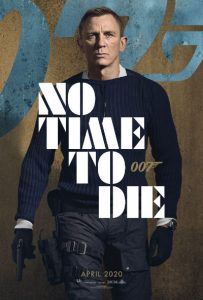 No Time To Die is now scheduled for a November 2020 release, after the April 2020 delay due to the worldwide pandemic.
No Time To Die is now scheduled for a November 2020 release, after the April 2020 delay due to the worldwide pandemic.  Now, if it were SpyMovieNavigator making this decision, we would do one of two things.
Now, if it were SpyMovieNavigator making this decision, we would do one of two things.
